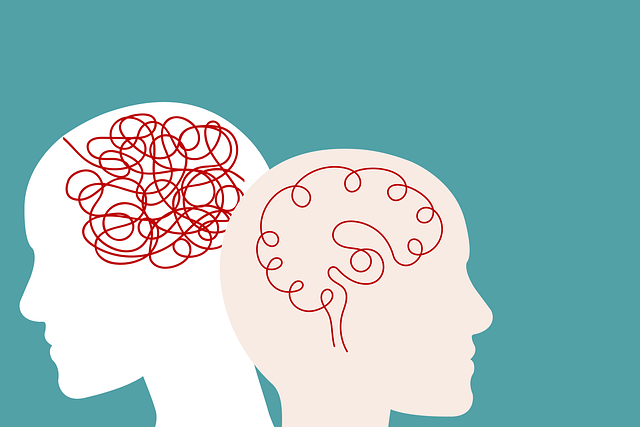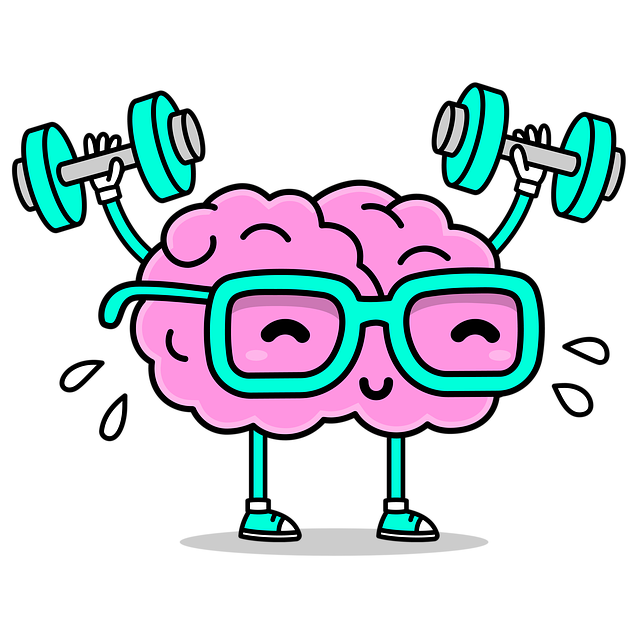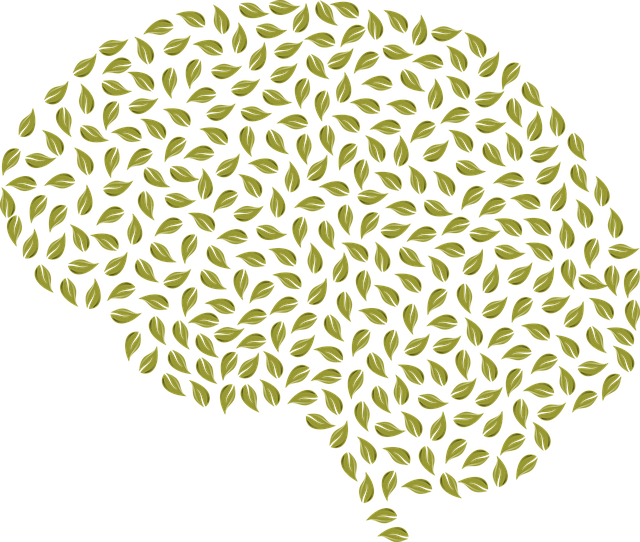Emotional intelligence (EI) is a powerful tool for individuals managing chronic illness at Highlands Ranch Chronic Illness Therapy. Through journaling, mindfulness exercises, and cultural sensitivity, patients gain self-awareness and empathy, improving mental wellness. These practices help manage emotions, strengthen relationships, and navigate the challenges of chronic illnesses, ultimately fostering better psychological outcomes.
Emotional intelligence (EI) is a game-changer in enhancing well-being, particularly for those navigating chronic illnesses. In Highlands Ranch Chronic Illness Therapy, understanding EI’s impact on mental health is crucial. This article explores strategies to build EI, focusing on self-awareness, empathy, mindfulness, and regulation techniques. By delving into these aspects, individuals can improve relationships and manage challenges associated with chronic conditions effectively. Discover how cultivating emotional intelligence can revolutionize your approach to well-being.
- Understanding Emotional Intelligence and its Impact on Well-being
- The Challenge of Managing Chronic Illnesses: A Psychological Perspective
- Strategies for Enhancing Self-Awareness in Daily Life
- Developing Empathy: Building Stronger Relationships
- Practicing Mindfulness and Regulation Techniques for Better Mental Health
Understanding Emotional Intelligence and its Impact on Well-being

Emotional intelligence (EI) is a powerful tool for enhancing one’s well-being, especially for individuals navigating challenges like chronic illness in Highlands Ranch Chronic Illness Therapy. It involves recognizing and managing your own emotions while also understanding and empathizing with others’ feelings. This ability to perceive and navigate emotions effectively has profound implications for mental wellness.
Developing EI can foster a deeper connection with oneself and others through practices such as journaling, which provides valuable insights into one’s emotional landscape. Additionally, cultural sensitivity in mental healthcare practice plays a crucial role in building empathy—a key component of EI. By adopting strategies that promote empathy, therapists and individuals can improve relationships, enhance communication, and ultimately contribute to better mental wellness outcomes.
The Challenge of Managing Chronic Illnesses: A Psychological Perspective

Managing chronic illnesses presents a unique challenge for individuals’ mental wellness and emotional regulation. In Highlands Ranch Chronic Illness Therapy, professionals recognize that living with a long-term health condition can significantly impact one’s psychological state. The constant struggle with symptoms, medical appointments, and lifestyle adjustments can lead to heightened stress, anxiety, and depression. These psychological effects often go beyond the physical realm, affecting overall mental wellness and daily functioning.
Journaling exercises have proven to be valuable guidance in navigating these challenges. Writing down thoughts, emotions, and experiences related to the illness can serve as a therapeutic outlet, allowing individuals to process their feelings and gain a deeper understanding of their psychological responses. This practice fosters emotional regulation by providing a sense of control and promoting self-awareness, crucial elements in maintaining mental wellness during chronic illnesses.
Strategies for Enhancing Self-Awareness in Daily Life

In the quest to build emotional intelligence, cultivating self-awareness is a pivotal step. This involves a conscious effort to recognize and understand your emotions, both in yourself and others. In Highlands Ranch Chronic Illness Therapy, professionals often emphasize the power of mindfulness exercises, such as journaling and meditation, to enhance this aspect. By dedicating a few minutes each day to reflect on your feelings and thoughts, you can develop a deeper connection with your inner world. This heightened self-awareness allows for better management of emotions, enabling individuals to respond rather than react in various situations.
Moreover, being mindful of emotional triggers and patterns helps in conducting a risk assessment for mental health professionals. Recognizing personal limitations and seeking support when needed is an essential part of maintaining mental wellness. Strategies like regular self-assessment and engaging in open conversations with trusted peers or therapists can foster this awareness. Incorporating these practices into daily routines contributes to overall emotional intelligence, making individuals more adept at handling life’s challenges.
Developing Empathy: Building Stronger Relationships

Developing empathy is a cornerstone of emotional intelligence and can significantly enhance relationships, especially for individuals navigating chronic illness in Highlands Ranch Chronic Illness Therapy. It involves understanding and sharing the feelings of others, fostering deeper connections and support networks. When someone is going through a challenging health condition, feeling heard and understood by loved ones can be incredibly powerful. Empathy allows caregivers, family members, or friends to offer meaningful support tailored to the individual’s needs, creating a sense of belonging and reducing feelings of isolation.
In the context of mental wellness, self-awareness exercises and crisis intervention guidance can further strengthen empathy. A Mental Wellness Podcast Series Production can provide valuable insights into different perspectives, while also offering practical tips for cultivating empathy. By engaging in these activities, individuals can improve their ability to connect with others on a deeper level, fostering healthier relationships and contributing to improved overall mental wellness.
Practicing Mindfulness and Regulation Techniques for Better Mental Health

In today’s fast-paced world, where stress and chronic illnesses like those managed by Highlands Ranch Chronic Illness Therapy can be prevalent, cultivating emotional intelligence is a powerful tool for navigating life’s challenges. Practicing mindfulness forms the foundation of this process. By focusing on the present moment and becoming aware of one’s thoughts and emotions without judgment, individuals can gain a deeper understanding of their mental health landscape. This awareness allows for early recognition of stress triggers, helping to prevent burnout and promote effective self-care practices.
Regulation techniques complement mindfulness by offering strategies to manage intense emotions. Deep breathing exercises, meditation, and physical activity are proven methods to calm the mind and body, reducing anxiety and improving overall well-being. Incorporating these self-care practices into daily routines can significantly enhance stress management, ensuring a more balanced and resilient mindset.
Emotional intelligence (EI) is a powerful tool for navigating life’s challenges, especially those faced by individuals with chronic illnesses in Highlands Ranch Chronic Illness Therapy. By understanding and managing emotions, one can significantly improve their well-being and relationships. The strategies outlined in this article—from self-awareness to mindfulness practices—equip readers with the skills to enhance EI, fostering a more balanced and fulfilling life. Through consistent application, these techniques can revolutionize mental health management and strengthen connections with others.













